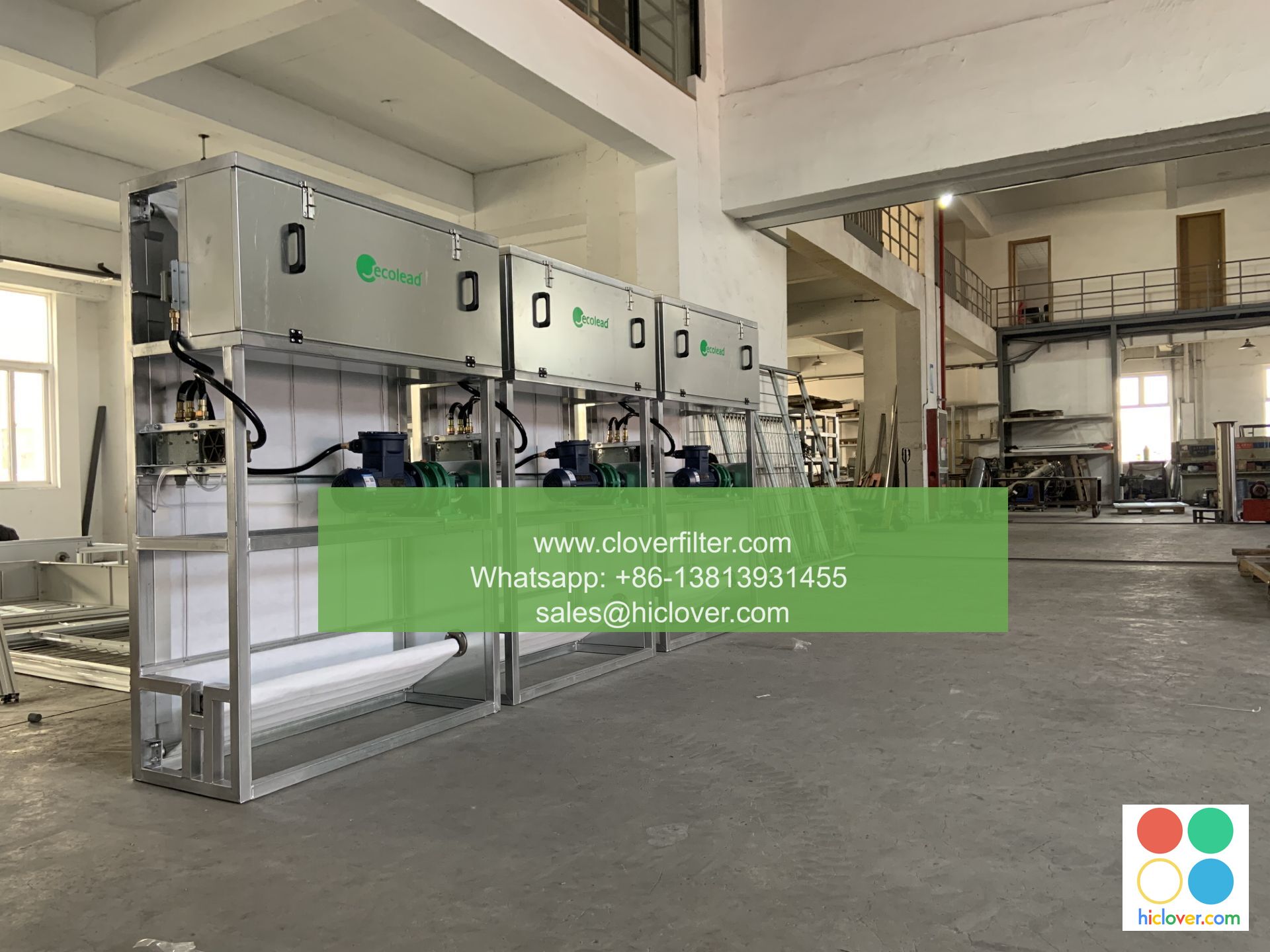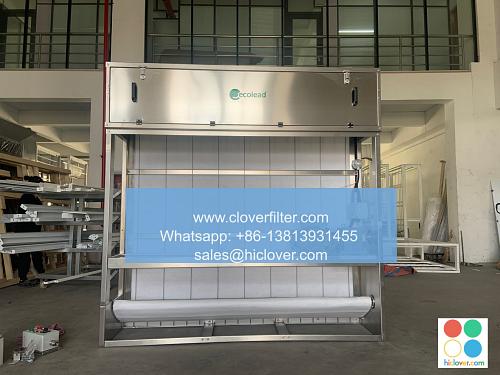Understanding the Technology Behind Automatic Roll Air Filters in Food Packaging Facilities

Automatic roll air filters are a crucial component in food packaging facilities, playing a vital role in maintaining a clean and safe environment for food production. These filters are designed to capture airborne contaminants, such as dust, pollen, and other particles, to prevent them from entering the packaging area and contaminating the food products. In this article, we will delve into the technology behind automatic roll air filters and explore their importance in food packaging facilities.
The technology behind automatic roll air filters is based on a simple yet effective principle. The filter consists of a roll of filter media, typically made of a synthetic material, such as polyester or polypropylene, which is wound onto a core. The filter media is designed to capture airborne particles, ranging from 0.3 microns to 10 microns in size, and is usually pleated to increase its surface area. As the air passes through the filter, the particles are trapped, and the clean air is released into the packaging area.
One of the key features of automatic roll air filters is their ability to automatically advance the filter media as it becomes dirty. This is achieved through a sensor that monitors the pressure drop across the filter and triggers the advancement of the filter media when it reaches a predetermined level. This ensures that the filter always operates at optimal efficiency, capturing the maximum number of airborne particles, and preventing them from entering the packaging area.
Another important aspect of automatic roll air filters is their ease of maintenance. The filters are designed to be easy to install, replace, and maintain, reducing downtime and minimizing the risk of contamination. The filter media can be easily replaced, and the core can be cleaned and reused, making it a cost-effective solution for food packaging facilities.
In addition to their technical benefits, automatic roll air filters also play a critical role in ensuring the safety and quality of food products. By capturing airborne contaminants, these filters help prevent the introduction of foreign particles into the packaging area, reducing the risk of contamination and product spoilage. This is particularly important in food packaging facilities, where the risk of contamination can have serious consequences, including product recalls, financial losses, and damage to the company’s reputation.
The use of automatic roll air filters in food packaging facilities is also regulated by various industry standards and guidelines, such as those set by the FDA and the USDA. These regulations require food packaging facilities to maintain a clean and safe environment, and the use of automatic roll air filters is seen as an effective way to meet these standards.
In conclusion, automatic roll air filters are a vital component in food packaging facilities, playing a critical role in maintaining a clean and safe environment for food production. Their technology is based on a simple yet effective principle, and they offer a range of benefits, including ease of maintenance, cost-effectiveness, and improved product safety. As the food industry continues to evolve, the importance of automatic roll air filters will only continue to grow, and their use will become increasingly widespread.
Conclusion
In summary, automatic roll air filters are an essential technology in food packaging facilities, providing a safe and effective way to capture airborne contaminants and prevent product contamination. Their ease of maintenance, cost-effectiveness, and improved product safety make them an attractive solution for food manufacturers, and their use will continue to play a critical role in ensuring the safety and quality of food products.
FAQs
- What is the purpose of automatic roll air filters in food packaging facilities? The purpose of automatic roll air filters is to capture airborne contaminants, such as dust, pollen, and other particles, to prevent them from entering the packaging area and contaminating the food products.
- How do automatic roll air filters work? Automatic roll air filters work by using a roll of filter media to capture airborne particles, which is then automatically advanced as it becomes dirty, ensuring optimal efficiency and preventing contamination.
- What are the benefits of using automatic roll air filters in food packaging facilities? The benefits of using automatic roll air filters include ease of maintenance, cost-effectiveness, and improved product safety, as well as compliance with industry standards and regulations.
- How often should automatic roll air filters be replaced? The frequency of replacement depends on various factors, including the type of filter, the level of contamination, and the manufacturer’s recommendations, but typically ranges from 1-6 months.
- Can automatic roll air filters be customized to meet specific facility needs? Yes, automatic roll air filters can be customized to meet specific facility needs, including different sizes, materials, and configurations, to ensure optimal performance and efficiency.

